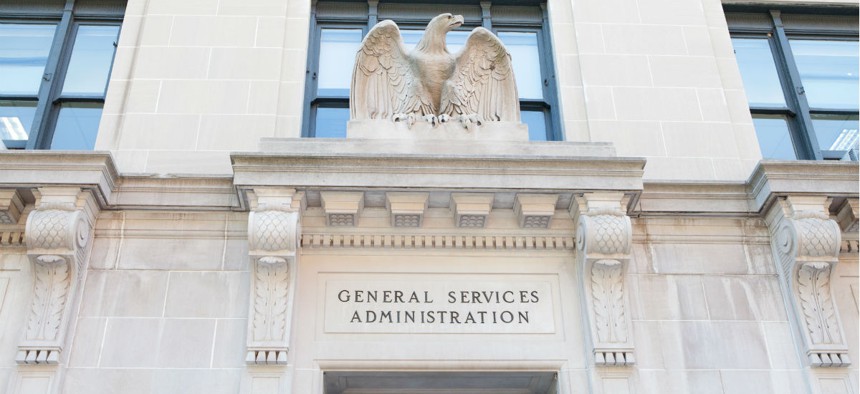
Shutterstock.com
GSA Failed to Remove Toxic Materials From Federal Facility Going Back Decades, Union Says
Dozens of studies have shown hazardous materials at the former munitions plant turned federal office building and child care center. Union alleges whistleblower retaliation.
The nation’s largest federal employee union said the General Services Administration has not done enough to protect federal workers and their children from hazardous materials at a federal building in St. Louis that includes a child care center. Dozens of studies and environmental sampling from 2002 through 2016 show a number of toxic substances in what was a former munitions plant, a recent watchdog report confirmed.
Additionally, the union says GSA has retaliated against a whistleblower for speaking up about the issue.
In a letter to Rep. Lacy Clay, D-Mo., whose district includes the Goodfellow Federal Center, the American Federation of Government Employees urged he take action to spur GSA to deal with upwards of 81 hazardous substances within the building.
AFGE accused GSA of knowing about various contaminants for years and failing to take action until an Occupational Safety and Health Administration investigation in 2016. To date, GSA has conducted remediation only to remove lead and asbestos from the property, and has failed to address other hazardous substances, including cadmium, arsenic and other heavy metals, particularly in the facility's heating and air conditioning system, according to the union.
“Management is currently asking federal employees to trust their health and wellbeing to agencies who have violated the basic right to work in a safe environment since 2002,” wrote Michael Kelly, AFGE national vice president for the union’s ninth district. “Without the 2016 OSHA investigation and the Office of Inspector General investigation in 2018, GSA would still knowingly be exposing employees to toxic contamination at the Goodfellow Center with no one the wiser. Even after GSA’s inadequacies were brought to light in 2016, they continued to misrepresent the dangers.”
The Goodfellow Federal Center was built by the Defense Department in 1941, and it was first used as a small arms munitions plant during World War II. The complex hosts offices for several agencies, including the Veterans Benefits Administration and the Agriculture Department’s Farm Service Agency. GSA did not respond to multiple requests for comment from Government Executive.
AFGE’s analysis is supported by a March 15 audit from the GSA's Inspector General, which criticized the agency for its response to the OSHA investigation findings and its inaction despite numerous indicators that the building was unsafe.
The Public Buildings Service "did not take adequate action to protect tenants, contractors and visitors from hazards at the Goodfellow complex due to ineffective environmental management programs, policies and guidance,” the inspector general wrote. “During the period Jan. 1, 2002, through Dec. 31, 2016, Heartland Region [Public Buildings Service] contracted for at least 33 studies costing in excess of $1.9 million relating to environmental sampling and analysis at the Goodfellow Complex. Most of these studies provided results that indicated various hazards were present at the complex and in many cases the results were duplicative of previous studies.”
Most upsetting to Ward Morrow, assistant general counsel at AFGE, is the fact that hazardous materials were found at the facility’s child care center.
“There’s been a lot of lead and dust and it’s been [in the child care center] for years,” Morrow said. “Not even just feds, there were non-federal employees with children there who were exposed to that stuff. The fact that the agency knew about this problem and had been exposing children to it knowingly, that’s really caused great concern for me.”
Despite the findings of the March audit, GSA still has not addressed the problems, Morrow said.
An April 3 internal GSA memo obtained by Government Executive appeared to call a whistleblower "subversive" and recommend retaliation against the employee.
“We recommend that the [employee] receive thorough training, coaching and counseling, for as long as necessary . . . to allow for him to completely understand his job function and responsibilities, his reporting limitations, the importance of being a team member, and how to effectively accomplish program objectives from within the organization,” the memo states. “If he is unwilling to participate in this training and coaching, or if he is still unsuccessful and performing in an inappropriate manner after a reasonable amount of time, then we recommend he be placed in another position within the organization where he can be successful.”
AFGE has submitted a whistleblower disclosure with the Office of Special Council.







